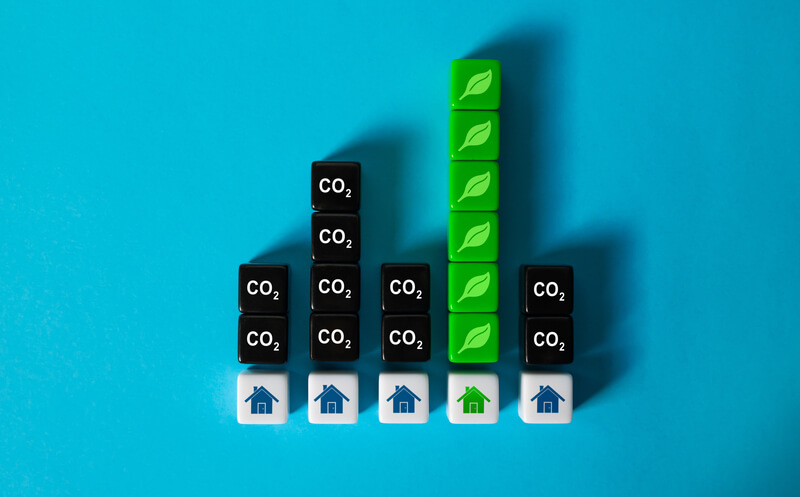Are you looking for ways to capitalize on the growing demand for sustainable properties? Then don’t miss out on the opportunities that green real estate offers!
There are substantial competitive advantages to owning or flipping environmentally friendly properties. You can attract tenants and investors that make these features a priority.
However, there are many regulations and legal concerns to navigate first. Equip yourself with the knowledge and strategies you must consider with us today.
Understanding Environmental Regulations
Several types of environmental regulations, like impact statements, ensure sustainable practices. They also exist to mitigate environmental harm and promote the overall well-being of communities. These laws encompass a wide range of areas, including the following examples:
- Building codes may also include provisions for eco-friendly construction, energy-efficient design, and sustainable materials,
- Energy efficiency standards reduce energy consumption and greenhouse gas emissions. They may dictate the installation of insulation, lighting, ventilation, and HVAC systems.
- Waste management regulations are a rapidly expanding part of the real estate sector. These regulations promote proper handling, recycling, and disposal of waste materials generated during construction.
- Emissions laws combat air pollution and reduce greenhouse gas emissions. Adherence to these statutes may require adopting cleaner technologies and alternative energy sources.
Impact on Real Estate Development
These laws shape the design, construction, and renovation of buildings. Consequently, they affect the selection of materials, energy systems, waste management strategies, and other practices. Staying in compliance may require more investments that affect project timelines and costs.
Furthermore, environmental regulations can influence the market demand for real estate properties. As sustainability becomes increasingly important, investors may enjoy a competitive advantage. Contrarily, non-compliant properties may face diminished market appeal, or potential fines.
Developers and operators must also consider the long-term operational implications surrounding climate change. Energy efficiency standards, for instance, can impact utility costs and maintenance. Climate catastrophes could possibly bring risks of high numbers of insurance claims.
Leveraging Environmental Incentives
Government and industry incentives play a crucial role in making these practices profitable. They also encourage developers, property owners, and businesses to invest in green real estate projects. These are three common types of incentives that may be available in your region:
- Loans
- Grants
- Tax credits
- Rebates
- Feed-in tariffs
- Financial incentives
- Other funding opportunities
Compliance and Potential Penalties
Failure to comply with environmental regulations can lead to consequences like legal liabilities, financial penalties, and property use restrictions. Additionally, non-compliance may cause delays or denials of permits, certificates, or licenses.
Beyond the financial and legal consequences, you can tarnish your reputation. As a result, you can have challenges securing projects, attracting investors, or retaining tenants.
Conversely, adherence can yield several benefits. By sticking to environmental regulations, you can enhance value and marketability. Compliant buildings are often more attractive and can lead to increased demand.
Moreover, observing environmental ordinances can result in long-term cost savings. Energy-efficient buildings, for example, reduce utility bills for owners and tenants. Proper waste management practices can also minimize disposal costs and generate revenue.
Future Trends in Green Real Estate
Laws and incentives may evolve in ways we cannot predict today. Also, climate change could become a possible impact an apartment you own. Regardless, some trends are more likely to affect your real estate goals than others. A few expected changes include the following:
- Energy efficiency requirements are likely to become more stringent.
- Promotion of decarbonization and electrification to decrease fossil fuel use.
- Emphasis on resilience and climate adaptations for design, flood mitigation, and managing stormwater.
- Expansion of green building certification programs to incorporate emerging technologies.
Exploring Green Building Certifications
Several green building certification programs recognize buildings with high levels of sustainability. Here are three well-known examples:
- Leadership in Energy and Environmental Design (LEED) is an internationally recognized program. It offers different certification levels, ranging from Certified to Platinum.
- Building Research Establishment Environmental Assessment Method (BREEAM) is a popular option. Its levels include Pass, Good, Very Good, Excellent, and Outstanding.
- Green Star focuses on assessing the attributes of buildings and communities. It has 4 Star to 6 Star ratings that indicate the level of sustainability.
Green building certifications provide a clear and recognizable symbol of a property’s sustainability. They often enjoy increased market attention and can differentiate your property.
Talk to a Local Attorney about Green Real Estate and Navigating Regulations
Steering through these shifting waters requires a comprehensive understanding of the law. Thankfully, embracing sustainable practices can unlock many benefits with expert guidance. A local real estate attorney may boost your plans by offsetting costs, avoiding hefty fines, and mitigating risks.
If you need assistance with environmental regulations and incentives, ask us for help. We can connect you with a real estate lawyer who specializes in this area. Ask us for help through our website or by calling (866) 345-6784 anytime!

